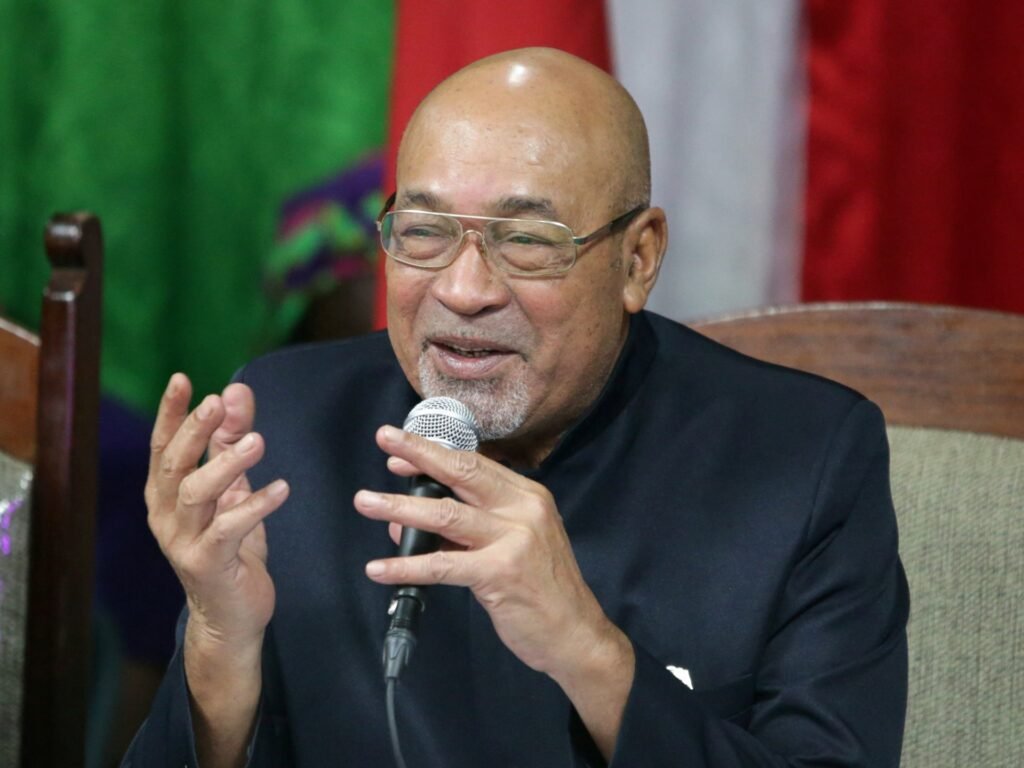The government expresses its condolences on the death of Bouterse, a former leader convicted for his role in the murder of activists in 1982.
Desi BouterseThe former president of Suriname, who fled authorities to avoid prison after being convicted of killing activists in the 1980s, has died aged 79, according to the government.
“Pending more detailed and definitive information from official channels, we would like to express our condolences to the wife, children and other bereaved families for this loss,” President Chan Santokhi said in a statement on Wednesday, referring to Bouterse.
Vice President Ronnie Brunswijk wrote on Facebook that Bouterse’s “life had a lasting impact on our country and his efforts will not be forgotten.”
His cause of death was not immediately clear and the government did not provide information about the location where Bouterse died on Tuesday.
A divisive figure, Bouterse was praised by his supporters for his charisma and populist social programs but viewed by his opponents as a ruthless dictator convicted of drug trafficking and extrajudicial killings.
He dominated politics in the small country on the northeast coast of South America for decades, leading a coup in 1980 and ultimately leaving office in 2020.

In 2019, he and six others were convicted for their roles in the 1982 assassination of 15 leading government critics, including lawyers, journalists, union leaders, soldiers and university professors.
Bouterse had claimed that the murdered men were linked to a planned invasion of the former Dutch colony.
Bouterse was in December last year sentenced to 20 years in prison for the murders, ending a historic 16-year trial.
Then he disappeared and was never in prison.
“There is no one who has shaped the history of Suriname since its independence as much as Desi Bouterse,” said Dutch historian Pepijn Reeser, who wrote a biography of Bouterse in 2015.
He said Bouterse was the first to overcome the strong social class divide that once characterized Suriname.
“Before the coup, it was unthinkable that someone from the lower class could become the most powerful man in the country. But he was also the first postcolonial leader to resort to political violence and the first to use Suriname as a transit point for illegal drugs,” said Reeser.
In 1999, a Dutch court sentenced Bouterse in absentia to 11 years in prison for smuggling more than 453 kg of cocaine into the Netherlands. The lack of an extradition treaty between the nations meant he never served his time in prison.
Early Wednesday, dozens of supporters gathered outside Bouterse’s home where his wife lived, tears streaming down their faces.
Many were dressed in purple, the color of his political party.






